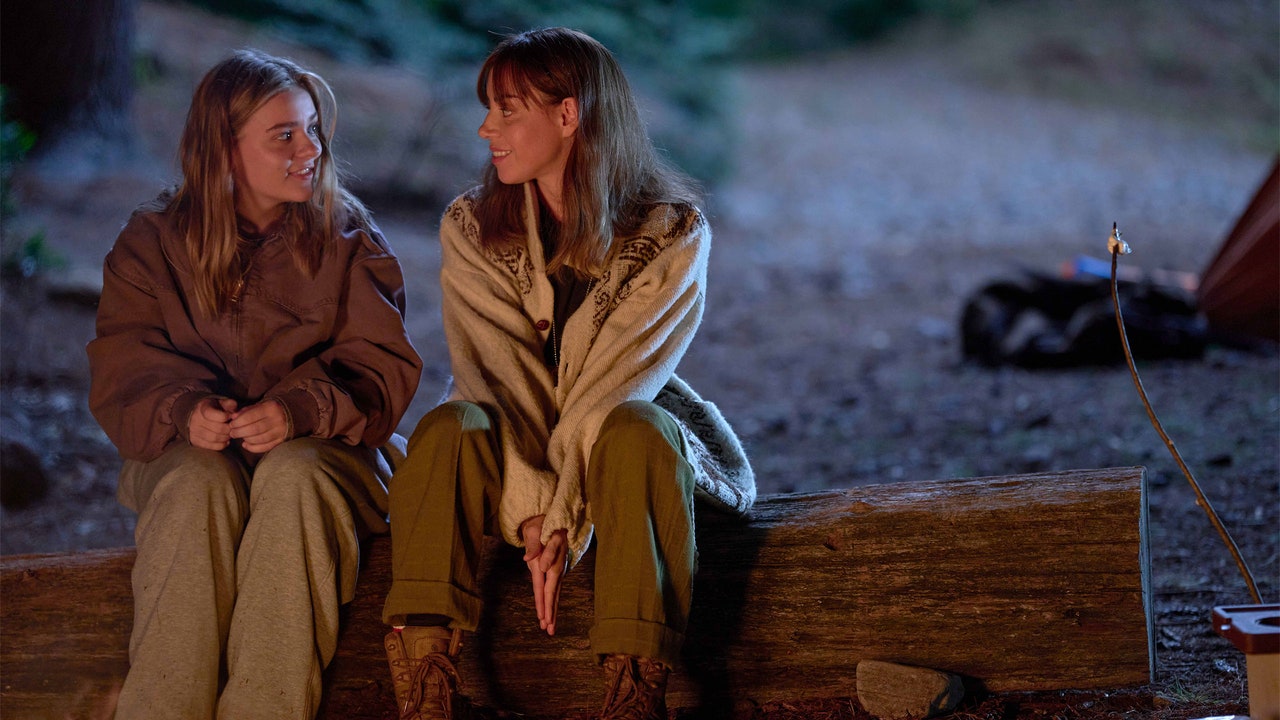The summer before I left for college, I couldn’t be bothered to spend time with my family. I had friends to say long goodbyes to, beer to drink in municipal parks, wistful solo drives to take while Eve 6’s “Here’s to the Night” blared on the radio. It was a magical summer, heady and intense—until, toward the end of it, my mom lamented that I had basically been a ghost and I realized I’d been ignoring two key people in all these preparations to fly the nest. I felt terrible, but didn’t have much time to atone before I had to move (to a dorm room fifteen minutes away from my house).
I’d imagine that’s a common experience, one universal enough to have been made into a feature film: My Old Ass, a sprightly and wistful comedy that premiered here at the Sundance Film Festival on Saturday. Written and directed by Megan Park, whose first feature was the sensitive school-shooting drama The Fallout, My Old Ass is about a heedless teen named Elliott (Maisy Stella) receiving a wakeup call by her 39-year-old self, played by Aubrey Plaza. This hallucination (or is it?) is brought about by a mushroom trip, in which Elliott is confronted by a shiftless, seemingly unhappy version of herself who encourages her to take stock of how charmed her adolescent life is and to take some time to appreciate those who make it so (her parents and brothers, mostly, whose family business is running a cranberry bog).
It’s a clever setup for a movie, made even cleverer by Park’s keen sense of character and place. Stella was a regular on the show Nashville for a number of seasons, but vividly pops in this film like a breakout discovery. She makes Elliott a just-shy-of-annoying good-times gal, rude and rowdy but ultimately kind and decent. It’s a charming, high-energy performance that is finely attuned to the emotional undulations of the film. As she exhibited in The Fallout, Park is quite good at writing teenagers, conscious of their idiosyncrasies, the necessarily limited scope of their worldview.
Park sets her latest credible creation loose in a specifically, gorgeously rendered place: the shores and islands of Lake Muskoka in Ontario, making My Old Ass a proudly, distinctly Canadian film. It’s as alluring as a pleasant dream, sun dappled and teeming with possibility. What a lovely location to receive such valuable life lessons; if Elliott didn’t learn to be grateful for it all, she’d be irredeemable.
But that nascent sense of perspective is only half the journey of the film, which eventually turns to confront that most pressing of teenage concerns: romance. Elliott dates girls, happily and hungrily, and pretty much considers herself gay. She’s confused, then, when she meets a cute and goofy summer worker at the cranberry bog, Chad (the utterly winning Percy Hynes White). He’s just so easy to joke with, and not so bad to look at in his appealingly lanky way. But he’s a boy. Further complicating matters is that older Elliott has warned teenage Elliott away from Chad. She won’t explain why exactly, but it seems that Chad must do something pretty bad somewhere down the line.
Teenage attraction is hard to ignore, though, and thus young Elliott pursues this Chad thing anyway, leading My Old Ass toward its most intriguing and persuasive thematic territory. What Park creates from the tension between this joyful, exciting present and a seemingly ominous future is rather marvelous, a big and sincere sentiment about the risk and reward of life, a message that is just as worthy for a middle-ager as it is for a kid.
If only there were more young-adult movies that are not so hung up on proving their timeliness, their generation-specific sense of savvy and instead focus on telling a good, dynamic story with perhaps slightly broader appeal. Which isn’t to say that My Old Ass doesn’t have a contemporary sensibility. Its jokes are relevant, and its compassionate, fluid approach to the vagaries of sexual orientation feels very of the moment—without slipping into Twitter-thread didacticism.
My Old Ass may be a bit patchy in its supernatural logic, and may hop from plot to plot a little awkwardly. But it is on the whole a winsome delight, a movie whose gimmick is used to surprisingly stirring effect. Maybe it was just the altitude making me susceptible, but I found myself crying for the last 15 or so minutes of the film, so convincing and bittersweet is its depiction of the liminal flash of time between one phase of life and the next. It’s a great and instructive movie for teens—and, I daresay, for the rest of us too. Some of us may be too advanced in years to greet the future with as much loopy optimism as Elliott, but we could at least maybe take our old asses up to Muskoka next summer in search of our own next adventures.




